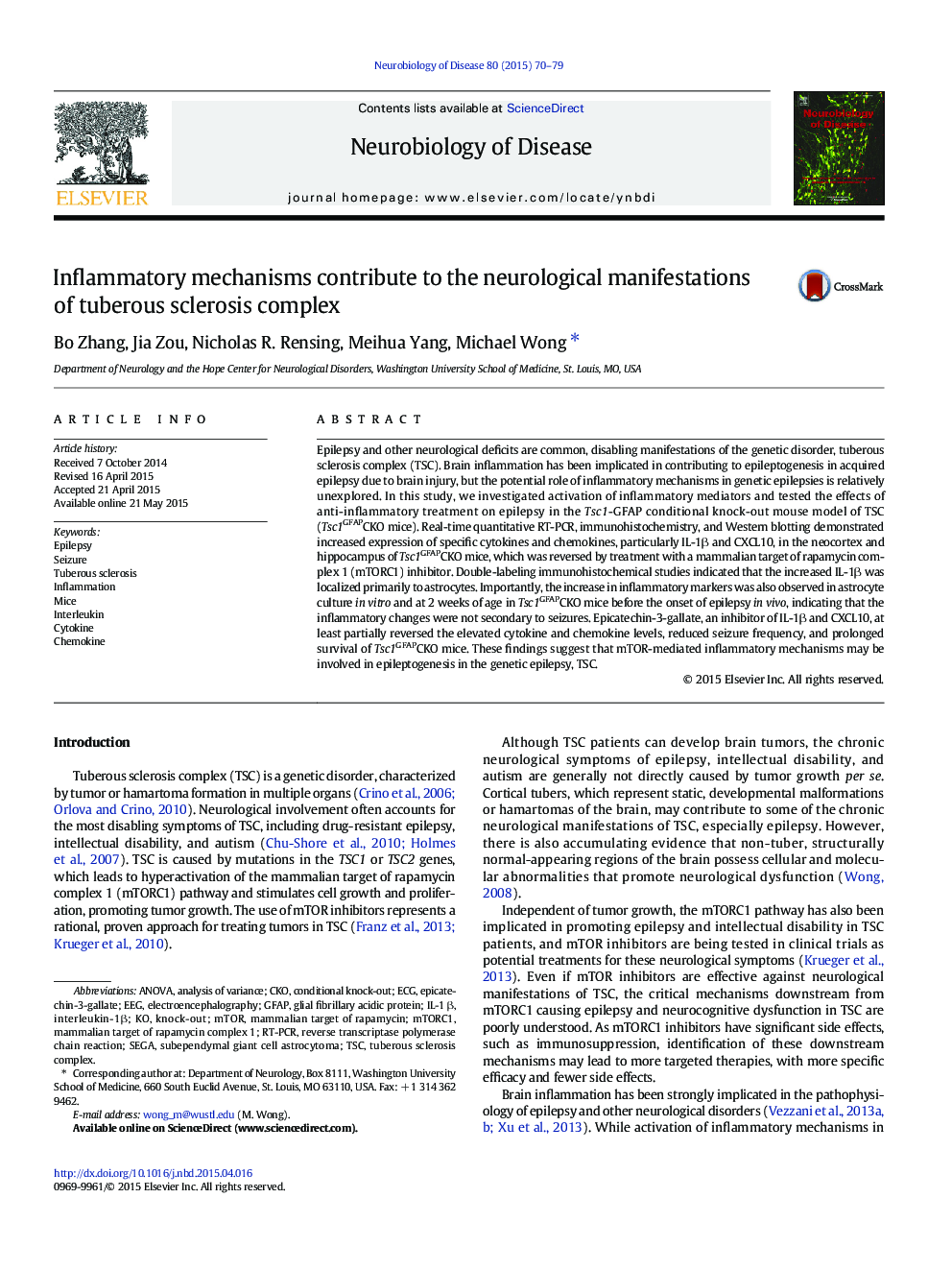| کد مقاله | کد نشریه | سال انتشار | مقاله انگلیسی | نسخه تمام متن |
|---|---|---|---|---|
| 3069273 | 1580643 | 2015 | 10 صفحه PDF | دانلود رایگان |
• Cytokines and chemokines are activated in a mouse model of tuberous sclerosis.
• An anti-inflammatory agent, epicatechin, decreases seizures and prolongs survival in this model.
• This study implicates inflammatory mechanisms in contributing to a genetic epilepsy.
Epilepsy and other neurological deficits are common, disabling manifestations of the genetic disorder, tuberous sclerosis complex (TSC). Brain inflammation has been implicated in contributing to epileptogenesis in acquired epilepsy due to brain injury, but the potential role of inflammatory mechanisms in genetic epilepsies is relatively unexplored. In this study, we investigated activation of inflammatory mediators and tested the effects of anti-inflammatory treatment on epilepsy in the Tsc1-GFAP conditional knock-out mouse model of TSC (Tsc1GFAPCKO mice). Real-time quantitative RT-PCR, immunohistochemistry, and Western blotting demonstrated increased expression of specific cytokines and chemokines, particularly IL-1β and CXCL10, in the neocortex and hippocampus of Tsc1GFAPCKO mice, which was reversed by treatment with a mammalian target of rapamycin complex 1 (mTORC1) inhibitor. Double-labeling immunohistochemical studies indicated that the increased IL-1β was localized primarily to astrocytes. Importantly, the increase in inflammatory markers was also observed in astrocyte culture in vitro and at 2 weeks of age in Tsc1GFAPCKO mice before the onset of epilepsy in vivo, indicating that the inflammatory changes were not secondary to seizures. Epicatechin-3-gallate, an inhibitor of IL-1β and CXCL10, at least partially reversed the elevated cytokine and chemokine levels, reduced seizure frequency, and prolonged survival of Tsc1GFAPCKO mice. These findings suggest that mTOR-mediated inflammatory mechanisms may be involved in epileptogenesis in the genetic epilepsy, TSC.
Journal: Neurobiology of Disease - Volume 80, August 2015, Pages 70–79
